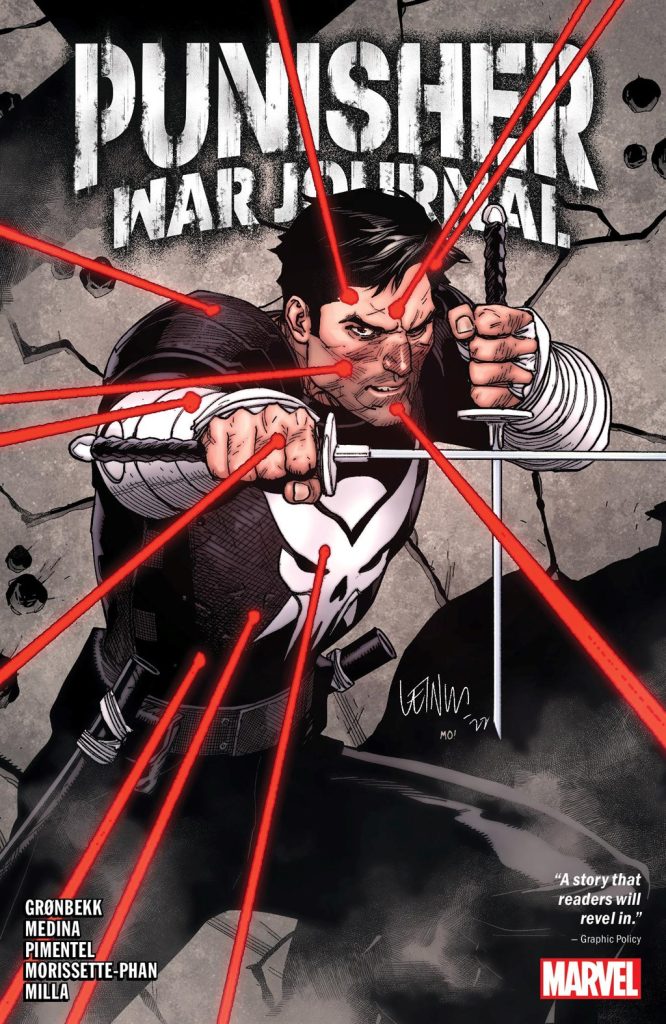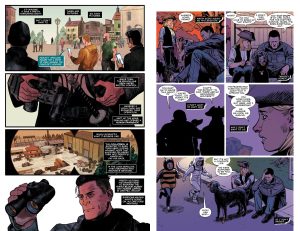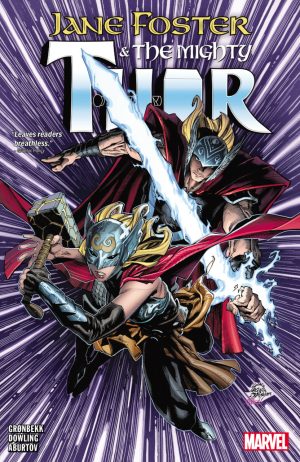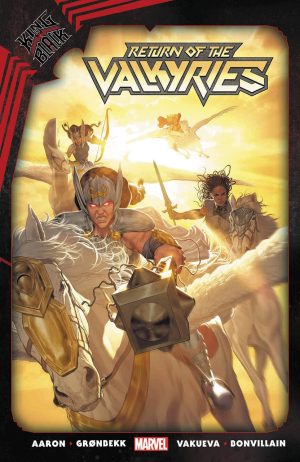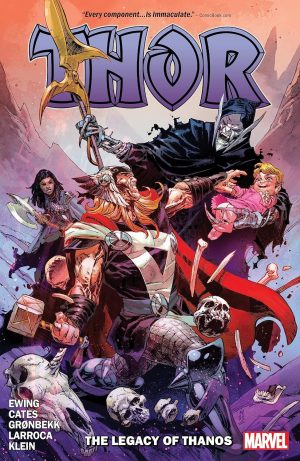Review by Frank Plowright
For better or worse, in 2022 Marvel decided to have the Punisher lead ninja clan the Hand. It was certainly different, and for the reasoning see King of Killers. He’s accompanied by the Hand in the present day dealing with unapologetic Nazi Hate-Monger’s operation opening Torunn Grønbekk’s three dips into the Punisher’s world.
Given the title, Grønbekk uses narrative captions for the Punisher’s thoughts as he goes about his bloody business, but also uses them to supply the thoughts of others. In opener ‘Blitz’ her vision of the Hate-Monger is striking, appalling attitudes emanating from a middle-aged bald man resembling a company accountant. It’s a subtle underlining of the banality of evil accompanied by zero concern about human life. Past and present are contrasted, each slightly differently drawn by Lan Medina, who delivers the Punisher’s world as an efficient action thriller. Only the observations raise the quality above that, though, with the action competently plotted, but offering little new for a Punisher outing.
Rafael Pimentel illustrates the different ‘Brother’, more a spy thriller to begin with as the underworld come together to create an immense pot of money. It’s first distributed to anyone who can definitively locate where the Punisher is, with the remainder intended for the person who actually kills him. It leads to a situation where the Punisher is stalking a Balkan gangster, unaware that he in turn is a target. ‘Brother’ makes greater use of modern military technology than is common for the Punisher’s world, and eventually features a familiar face. While good on the opening scenes, when all hell breaks loose Pimentel isn’t as effective, jerky cuts telling the story, and what was Grønbekk thinking by having the Punisher apologise?
‘Base’ begins by looking back to Frank Castle’s return from war. His marriage is troubled, he can’t leave the war behind, and he’s assigned the task of keeping a journal by his therapist. It’s a simple, yet clever rationalisation of the war journal’s origin. The story sets an abiding tension for readers knowing at some stage Frank is going to blow, and very likely in trivial circumstances at the wrong person. Djibril Morrisette-Phan illustrates this troubled domesticity with some panache, offering detail and character, especially a brooding Frank. There is a prolonged action finale offering greater than usual suspense for being the Punisher’s first domestic action, and the closing scenes tie everything together very neatly without overselling the point being made. It’s very, very good.
The pagination is effective, starting with competence offering little new, and improving throughout, showing Grønbekk as versatile in supplying different moods and themes. All in all, job well done.
